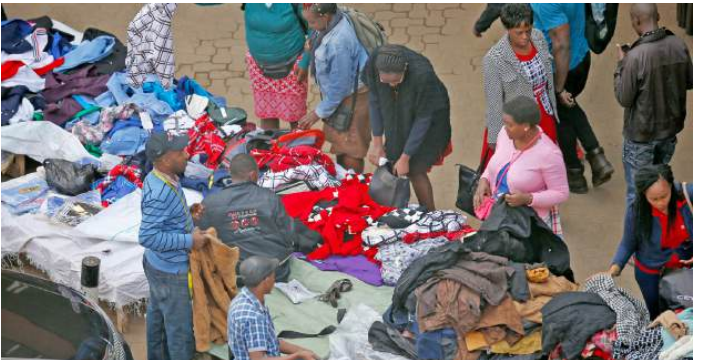
 Hawkers along
Tom Mboya
Street in Nairobi.
/FILE
Hawkers along
Tom Mboya
Street in Nairobi.
/FILE
Street vendors and hawkers in Kenya may soon be subject to laws that regulate their trade and establish minimum operational standards.
This is after the Street Vendors (Protection of Livelihood) Bill, 2023, was presented to the Parliament in a move likely to set grounds to bring more of the informal sector into the tax bracket.
According to the National
Assembly, if passed into law, the Bill will help county governments manage
street vendors and hawkers, who have long protested against harassment and
other unfavourable regulations.
"The Bill seeks to provide a legal framework for the recognition, protection and regulation of street vending in Kenya, the identification of minimum standards for street vending," noted a notice from the National Assembly.
The proposed law signals potential relief for
street vendors, providing legal recognition and structures at both county and
national levels to decriminalise hawking through formal dispute resolution
mechanisms.
The draft legislation comes amid complaints from residents about hawkers crowding central business districts (CBDs). Once enacted, hawkers will have rights to adequate facilities and compensation for any damage to their property.
Sponsored by Nominated Senator Esther Okenyuri, the Bill will include data on all street vendors and identify potential areas where they can operate.
The Bill is aimed at safeguarding the
livelihoods of itinerant traders, particularly as some county governments seek
to drive them out of towns.
Under the proposed legislation, each county government is required to develop a street vending zone plan and submit it to the county assembly for approval. Trade executives will oversee the registration of licensed vendors and manage the renewal of vending licenses.
County governments may also refuse to renew or temporarily suspend a license for up to 12 months if a vendor breaches any provisions of the law.
Several hawkers who talked to the Star had
conflicting views about the law, with some welcoming it, noting that legal
recognition could protect them from constant harassment.
Daniel Kiama, who sells second-hand shoes along Tom Mboya Street, said that although he was not privy to the proposal, he welcomes anything that will bring sanity to the trade.
“I have not read the proposed law. I welcome it as long as it brings order. We face harassment every day. We give county askaris more money than our profits,’’ he said.
His counterpart, Peris Wambui, is hoping that the Bill is not a trap to inflict more taxes on them.
“We are already paying too much both to the
national and county governments. I support the proposed law if it is going to
assure me of protection against city askaris who are ruthless than thieves,’’
she said.
Juliet Nyamai, who sells baby clothes along Moi Avenue in Nairobi, is pessimistic about the feasibility of the law, saying that new hawkers flood the city every day.













